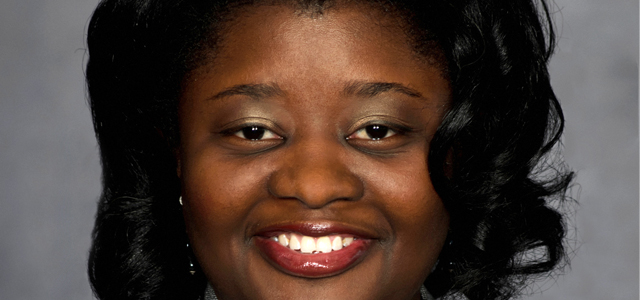By Kori S. Carew
Over a year ago on June 12, 2016, my morning unfolded much like that of many of you. I was horrified at what I was learning as details of the Pulse nightclub shooting in Orlando came in. As the day rolled on, the number of dead rose. We later learned 49 died and 58 were wounded after a murderer went into a gay nightclub on Latin night and opened fire. The murderer chose a safe space — a place where people who are gay find safety in being with each other in a world that often heaps contempt and sometimes violence on them. I cannot imagine what was going through the minds of the parents who were calling their children trying to determine if they were alive. I went to bed on June 12, 2016, with a clear answer — we must address the entire firm about grief, community, and standing against hatred with a letter.
Many of us believe we must not allow external events to become center stage in the office. We worry about whether we should address events like this if we did not speak about the last national tragedy. We worry that acknowledging events that impact certain groups of people will spark political discussions. At Shook, three thoughts governed our decision to speak. First, there is never a bad time to start doing the right thing. Second, silence in the face of tragedy and hate speaks volumes. Third, one of the elements of our Diversity & Inclusion mission is to promote a culture where everyone can belong in their diversity. Belonging demands visibility. Visibility requires acknowledging when some of us are impacted. Inclusion is not politics.
But soon, the work week took off and I dealt with various_ res, and I hadn’t written that letter. On Tuesday the 14th I gave an unplanned speech to our senior administrative management team about acknowledging what had happened over the weekend and the importance of us as leaders checking in with our employees. Many took the message to heart and engaged with others in the organization. What was top of my mind was the silence at work from colleagues after the shooting in Charleston and how important it was that we not be silent again. I went back to my desk and sent a note to our LGBT attorneys and professional staff. On Wednesday and Thursday, the Diversity and Inclusion team led a firmwide response to the tragedy. Shook hosted a live program where we honored the victims, talked about how to engage in a conversation about the tragedy, heard the personal stories of LGBT employees and allies, and affirmed our commitment to equality and inclusion. Our firm chair addressed the group. We support the action to confront an employer’s unacceptable behavior. We distributed solidarity posters and made additional copies available upon request. Many of these posters remain on walls and doors today. We also placed the tribute to the victims on the firm intranet along with a letter from our firm chair. I am proud of how the people at Shook responded. With short notice, people came together. They blow me away time after time with how they respond with open hands and minds.
The response from our LGBT employees and allies was resounding appreciation that the firm did not choose silence. More significantly, the response across the firm was positive as other leaders and I spoke of the need for us to have courageous conversations about tough diversity issues. Our response to the Pulse nightclub shooting was only made possible by the intentional creation of a culture of addressing tough issues and challenging the status quo. In the fall of 2016, we launched a reverse mentoring program focused on race and paired senior partners with minority attorneys and continued discussions firmwide on issues of immigration, Islam, LGBT equality and more. And in 2017, we continue with programs focused on various issues and an interactive, hands-on series to equip people further on engaging in difficult diversity-related conversations.
As we cultivate environments of inclusion, we must speak for each other. Choosing to speak and address our organizations after national incidents of hate around diversity takes courage, and courage is a practice. In a political environment where people draw artificial barriers between work and life — where we don’t discuss social justice issues at work — our failure to speak will inevitably lead to us being silent when we should not. Inclusion requires that we speak up on issues that impact those in our organization and conflict with our stated values and commitment to diversity. After all, our employees are always watching and listening. Inclusion is about belonging. And when we belong, we do not choose silence in times when some of us are targeted.



